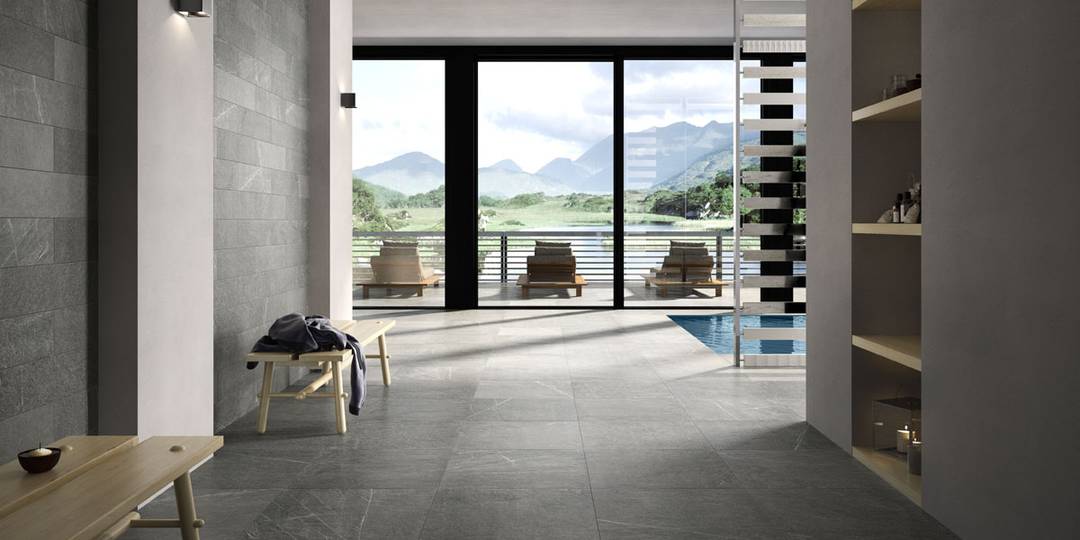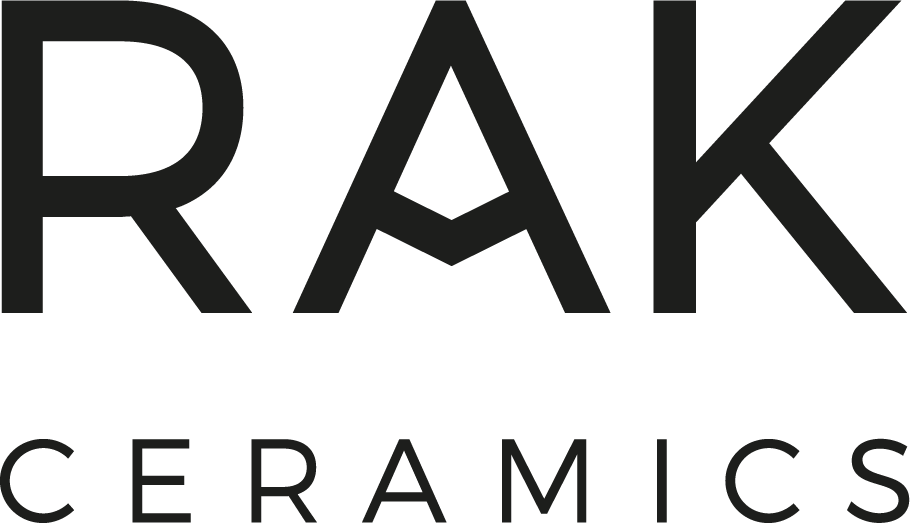
November 2017
- Reported net profit increase of +924.4% YoY led by strong performance in core business in 2017
- Board announces cash dividend payment of 25 fils per share and 5% bonus shares
- Total revenues increased by +2.2% YoY to AED 2.9 billion driven by strong growth in core revenue, which increased by +7.6% YoY to AED2.6 billion
- Gross margin strong at 31.6%, up +110bps YoY, reflecting a 320bps improvement in tile margins
- EBITDA of AED 533.4m at a margin of 18.7%, +130bps YoY
- Net profit margin of 11.1%, up by +990bps including net gain of AED 27.4m from sale of non-core and other assets
- Return on equity at an all-time high of 11.4%
- Significant progress made on Value Creation Plan (VCP) 2.0, moving RAK Ceramics towards its vision to becoming a global ceramic lifestyle solutions provider
Ras Al Khaimah, United Arab Emirates, 7 February 2018 – RAK Ceramics PJSC (Ticker: RAKCEC: Abu Dhabi), one of the largest ceramics’ brands in the world, announced its financial results for the year ended 31 December 2017.
RAK Ceramics reported total revenue of AED 2.9 billion for 2017, an increase of +2.2% YoY. Core revenues increased +7.6% YoY to AED 2.6 billion while non-core revenues declined -34.0% YoY, following the sale of Electro RAK LLC, RAK Warehouse Leasing LLC and divestment from other noncore assets as part of the Value Creation Plan.
Higher core revenues principally resulted from increased sales in the United Arab Emirates, India and Bangladesh which were +20.1%, +10.8% and +21.1% higher YoY respectively. The increase in revenue from the United Arab Emirates reflects market position and ability to capitalise on the improvement in demand for construction activity in the lead up to Expo 2020. Higher sales in India were driven by the company’s successful transformation of its leadership as well as its investment in expanding its distribution network in an important and high growth market. Strong growth in Bangladesh, support by dominant market leading position, increased product demand and backed by production capacity expansions which completed in 2016. The tableware business continues to show growth with revenues increasing by 35.9% YoY to AED 237.8m driven by the consolidation of Restofair (a catering supplies company) within the larger group.
Abdallah Massaad, Group CEO, RAK Ceramics, said: “2017 was an important year for us as we really started to see the benefits of our Value Creation Plan, resulting in a reported net profit of AED 315.5 million, a great achievement for the business driven by strong growth in the UAE.
One of the core principles of the Value Creation Plan was to divest from non-core businesses, such as RAK Warehouse Leasing and Electro RAK, and invest in the growth of our core business. This has resulted in core business rebounding, seeing core revenues grow by +7.6% year on year to AED 2.6 billion. Core business growth was led by robust sales in UAE and Bangladesh markets and our tableware business, which remains a high growth and high margin global leader in the industry. We are pleased to report that our return on equity reached an all-time high in 2017 and look forward to continuing our growth momentum.
Another objective of the Value Creation Plan was to gain greater control over our assets. Seeing the growth opportunity in India, we sold down part of our stake in RAK Ceramics Bangladesh to fund a controlling stake in an Indian manufacturing plant in Morbi, Gujrat. RAK Ceramics is the only multinational ceramics producer in India.
Looking ahead to 2018, there are a number of external factors that might affect our business with increased competition, gas and oil price volatility and geo-political headwinds. However, we see that GDP is growing in all of our core markets and the UAE and KSA have higher government infrastructure budgets this year: positive trends for growth.”
Margin enhancements across the board
Core gross profit margins rose +200bps to 32.5% due to improvements in production efficiencies across all tile plants. The consolidated gross margin increased by +110bps YoY to 31.5%, while EBITDA and reported net profit margins increased by +130bps and +990bps respectively.
Reported net profit of AED 315.5m, +924.4% YoY
Reported net profit of AED 315.5m was the result of an increase in core revenue coupled with gross profit margin enhancements on the back of greater efficiencies throughout the business and stringent cost management.
Extraordinary net gain on sale of RAK Warehouse leasing, Electro RAK, and other assets amounted to AED 27.4m. On a like for like basis, net profit for the year increased +33.5% YoY to AED 288.2m.
Return on equity at all time high
Return on equity reached an all-time high in 2017 at 11.4%. Net debt decreased by -15.2% to reach AED1.4 billion equivalent to 2.6x EBITDA, and capital expenditure was lower in 2017 as a majority of projects are scheduled for 2018. These enhanced shareholder returns are driven by a rebound in the core business, coupled with exits from non-core and underperforming operations.
Progress of VCP 2.0
2017 witnessed the tangible results of the Value Creation Plan first initiated in 2014. More specifically, the Group was successful in achieving these major objectives:
- Core business growth and non-core divestment: Non-core revenue contribution to total revenues has steadily declined to an all-time low of 8.4%, as a result of the divestment of non-core and non-performing operations.
- India turnaround: After implementing management changes, revenues in India have increased by +10.8% contributing to overall core revenue growth. In December 2017 the company acquired additional manufacturing facilities in Morbi, Gujarat.
- Tableware performance: The tableware business continues to show growth with revenues increasing by +35.9% YoY to AED 237.8m driven by the consolidation of Restofair (a catering supplies company) within the larger group.
- Cost efficiencies and margin improvements: Core gross profit margins increased by +2% supported by higher margins in the tiles business. The exits of non-core business supported the increased the blended gross profit margin to 31.6%.
- Integration of Saudi Arabian distribution operations: Acquisition of distribution JV’s has achieved full control over operations, with a strong focus on post-acquisition integration and the expansion of the client network.
- Optimised UAE production: Investment in technology to reduce cost of production through modernisation of the plants.
Key highlights for the year ending 31 December 2017 - Reported net profit was AED 315.5m with margins of 11.1% and a return on equity at an all-time high of 11.4%
- Like for like net profit increased by +33.5% to AED 288.2m YoY with margins of 10.1%
- Dividend cash payment of 25 fils per share and 5% bonus shares
- Core revenues increased by +7.6% to AED2.6 billion YoY
- Total revenues increased by +2.2% to AED 2.9 billion YoY
- Core gross profit margin increased by +200bps to 32.5% YoY
- Total EBITDA increased by +9.8% to AED 533.4m YoY with margins of 18.7%
